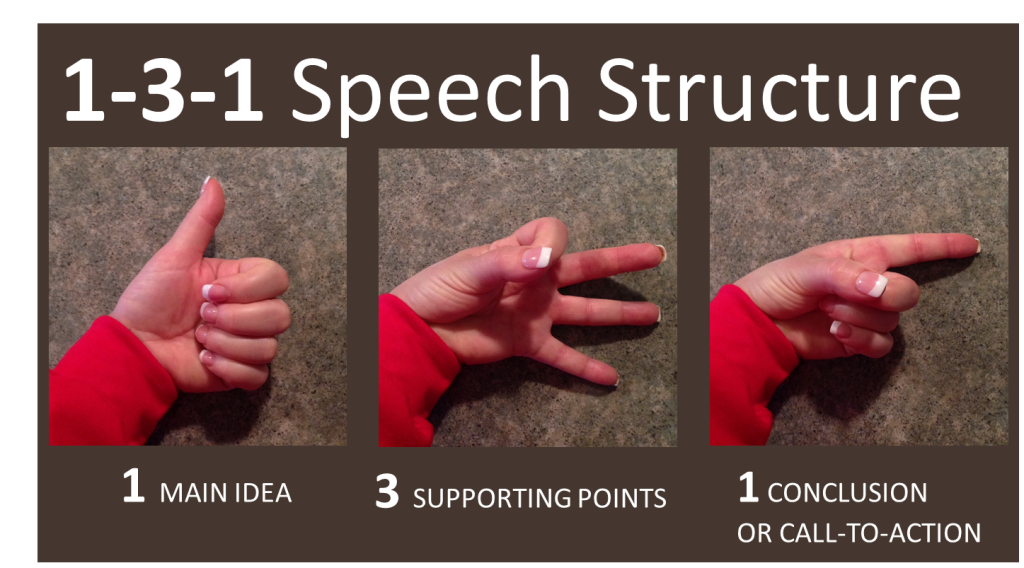What Is an Extempore Speech?

One can define extempore speech as an impromptu amalgamation of thoughts culminating into a self-composed speech, the topic for which one receives then and there. Extempore speech is typically used to gain a deeper knowledge of a participant’s many points but it also comes with a lot of problems.
No prior preparation for which is permissible. It won’t be wrong to say that catching hold over the art of delivering extempore speeches becomes the primary characteristic of a public speaker. Furthermore, being able to present the extempore topic to the audience without any proper preparation is a genuinely exceptional achievement.
How to Give a Good Extempore Speech?
To succeed in an extempore speech round, one needs to follow certain tips which can prove to be very helpful in your extempore speech. An extempore speech is always delivered on a random topic given. Always remember to prepare with some previously used extempore topics. We don’t say Practice makes a man perfect, just for the sake of it, it truly is so. One should always practice speaking on random topics. That is how we get an idea of a good extempore speech and its concoction.
Below are some checkpoints on giving a good extempore speech.
Know Your Direction
You’ve got to know how you want to deliver your speech before you start it. Whether you wish to begin on a lighter note by giving your opening a pinch of humour or with an awe-inspiring serious remark. The easiest approach to decide is to acquire a rapid sense of your target audience. What type of people are they? What direction would they accept? Your speech will be appreciated significantly more if you speak in a language that works with those listening to it.
Watch Your Words
You’ve got to listen to yourself. Do not say something that makes you regret it later. As a few matters could be personal to your audience while certain words can be offensive to others. Mind your tone as well, as it may simply affect the reception of your speech. Listen to the words coming out of you to make sure you’re saying what you want your audience to hear.
Plot A Course
Before you speak, try making a quick mental outline of what you want to say. Some of the worst speeches came when people didn’t take a moment to organize their thoughts before opening with their speeches. Your outline doesn’t even have to be a detailed one; all you require is a guide to help you keep track of your thoughts.
Prepare Some Back-up
Have some backup in mind. Forgetting your next statement which you wished to propose, isn’t unnatural. What separates a good speech from a disaster is how well you catch yourself before making a blunder. It’s good to have a backup plan for the times when your mind suddenly goes blank. That way, if you find yourself in a circumstance where you don’t have anything to say, you’ll be able to gracefully exit the situation. You can also bail yourself out with a polite way of excusing yourself. If you wish to attract a few laughs, it’s okay to explicitly talk about your mental block.
Keep It Short
Last but not least keep your speech short. Your extempore speeches are not supposed to be epic narratives. The crisper and to the point you get the better. Use of certain words results in reflecting it to your audience that you lack in prior preparation. By doing so, you simply miss the point here. Speaking clearly and with as few words as possible you reflect confidence in your own opinions and that makes you a much refined public speaker than those who just seem to rely on their wide vocabularies.
Key Components of Extempore Speech
To be able to give a good extempore speech, one must practice a lot of extempore topics but more importantly, understand the structure of a good extempore speech and presentation. The three most important aspects of a good extempore speech are-
- Fluency
- Content
- Structure
Fluency
Fluency is of the utmost importance when it comes to giving an extempore speech. Understanding the relationship between the various parts of speech and keeping track of the new words learnt is a way of developing grammar and vocabulary. Good grammar isn’t the only thing that gives you fluency. Practising speaking in the language is as important as grammar.
When a person is fluent in a particular language it becomes easier for them to recover from a grammatical error or any such error made while making a speech. Recovering from an error is not difficult at all, simply repeat the sentence correctly, excuse yourself and Move on. Being afraid is normal, but never let fear overtake you.

Content
Never try to talk about something you do not have any idea about, rather limit your extempore to the fact you possess and go on. When you are unfamiliar with the theme in the level of detail for just about any reason, talk about what you know about it. Additionally, too much content is never a good sign, limited but meaningful content is what we should aim for.
Listen! It is an important lesson which people forget to revise. Preparation for any topic can only happen when you have sufficient knowledge of the topic, and that is only possible when you listen to the topic given and the instructions provided.

Structure of Extempore Speech
The last wheel on this three-wheeler is Structure. One can build an extempore on varied topics and for multiple time spans. The structure of any such speech acts as a framework, the content acts as the functional unit, and fluency acts like its muscular power.
An extempore speech should be structured in a way to maximize efficiency and effectiveness. The following is one of many structures to ensure the best results.

Opening
Always open your extempore by grabbing the attention of the audience. A smart line, concise observation or a famous quote is always a good way to go and contains what it takes an extempore to be a winner.
Facts
Try sticking to a few factors so that your extempore doesn’t seem overcrowded, interrupted, boring, or hard to remember. Be specific and stick to a point. As a listener, an individual might begin to feel boring and lose interest, the moment your extempore becomes too general. The extempore becomes a complete buzzkill. There will be no reason for the audience to remember you or the topic you’re speaking on.
Anecdote
An anecdote is nothing but an account of a particular incident or event, specifically a short one that is of amusing nature. Something that happened to either you or someone close to you. Include personal experiences to make your piece relatable and engaging. Getting to know how a particular incident made you feel also helps the audience to relate better. You may even talk about how you came up with this extempore speech and its concoction at that very moment.
Closing
Ending with a bang is the final criteria of an excellent extempore. The previous points stated, should naturally pave way for the conclusion. Attempting to cover too many points in a single go can even dilute the impact of your speech. Use Pauses to highlight the points and lead up to a great closing.
Tips for Extempore Speech
The Latin word extempore translates to “at the time.” It’s necessary to keep in mind that there are certain baseline rules to follow when giving an extempore speech.
Here are a few extempore speech tips to follow. If you don’t get straight to the point, you’ll get a bad grade.
- Firstly, each participant is given a 2-to-5-minute time frame to talk and present their ideas.
- If the time limit is not met, points may be deducted.
- Switching from one language to another earns negative marking.
- The jury’s or judges’ decision is conclusive.
Why is Extempore Speech Important?

When a person tries to talk freely, it boosts their confidence and helps them overcome stage fright and public speaking fears. This typically allows the children to express themselves without masking their feelings.
In comparison to other types of talks, extemporaneous speeches have a number of advantages. Extemporaneous presentations are more authentic and unscripted, and they keep the audience engaged and motivated in the extempore topic. A well-prepared extemporaneous speaker will also know his topic very well and in-depth, making him sound like an authority in his field and earning the audience’s trust.
Because of its adaptability, extempore speeches encourage audience participation. During the extempore presentation, the speaker has the option of involving the audience. He can also take questions during his speech to ensure that the audience understands the topic of the presentation while it is being delivered. This allows the person to ensure that everyone is aware of the situation and that no one loses interest in the middle of a talk due to a lack of extempore topic understanding.
Some other benefits of extempore speech and presentation include:
- Boosts Confidence
- Improves Communication skills
- Ability to think on the spot
- Develops logical and analytical thinking
Some More Extempore Speech Tips and Tricks
- Extempore should always be practised with a variety of topics. This will allow you to list points, arrange them, and deliver them without feeling rushed.
- If you find yourself becoming nervous, try moving about or making some coordinated movements.
- Avoid sounding emotional or disclosing too many confidential info when giving your extempore speech.
- When dealing with delicate issues or when selecting one side is difficult, always remain impartial and speak on behalf of both sides. However, you must bear in mind the time limit and avoid going overboard.
- One of the most important things to remember is to provide a few small examples related to your extempore topic to liven things up. With practise, you should be able to ace the extempore topic.
Extempore Speech Topics

Extempore speech is a method of assessing and judging a person’s speaking abilities, as well as the flow of their thoughts and the manner in which they communicate their views. The way you approach a subject and the points you make, whether you realise it or not, are quite essential.
Following are some of the most common extempore speech topics:
- Why is junk food bad?
- Are outdoor games good?
- Why is social media important?
- All that glitters is not gold
- Hard Work Vs Smart Work
- Are Scores a good measure of Intelligence?
- The significance of a person’s handwriting
- Why books are important
- Great things about the ocean
- How to save money
- Animals are stress relievers
- Online communication and real-life friendship
- Creativity cannot be taught
- Why is a failure the greatest teacher?
What is the Importance of Learning Extemporaneous Speech?
- Throughout an extempore session, a person’s capacity to think quickly is put to the test. Because the individual must talk on the spot, it assesses his or her capacity to analyze, coordinate, and express in the moment.
- If adequate preparation is not done before to the speech, an extempore speech has a great consequences of going in a chaotic and disorientated direction. Before rationally positioning them to form a cohesive and well-knitted presentation, it is essential that the candidate first grasp the important issues that must be discussed.
- The most challenging aspect of presenting an extempore speech is arriving up with a fresh chain of thoughts. Due to the restricted time available for the assignment, this takes on even greater proportions.
- Prioritization and sequencing to exhibit logical thinking: The challenge isn’t just speaking quickly. But also making logical sense by stating things in a systematic and rational manner. This is especially true if the topic is vague and strongly dependant on the viewpoint of the person.
- Interaction with the panel: A one- to five-minute extempore presentation is standard. The applicant must do justice to the issue within this constrained time span. Which, is more likely if he connects well with the panel.
- Communication skills: These are essential because communication skills, both verbal and nonverbal, have an impact on the presentation’s efficacy. Arrangement, smoothness, and intonation are all important characteristics of successful verbal communication. Enthusiasm, eye contact, and mannerisms are common examples of nonverbal communication.
The basic feat is the deliverance of an extempore speech and its concoction. Here’s a blog from Podium School to give you a few tips on extempore.
FAQ Section
What is the procedure for conducting an extempore?
An extempore speech is one in which the person is offered a topic and one minute to prepare and deliver their opinions about it.
What is the thing that is different between extempore and impromptu?
Impromptu and extempore are the same in that they are both improvised without any prior preparation, planning, or practise.
The distinction is in the delivery method: an impromptu speech is composed and delivered on the spot, but an extemporaneous speech is composed and delivered with only a few notes.
How do you begin an extempore speech?
1. To begin an extempore speech, begin with a quote or a brief narrative related to the topic; this will give you an excellent start.
2. If you’re short on ideas, quickly apply what you’ve gained to your own life and move on.
3. Because extempore only lasts a few minutes, people try to speak rapidly.
On what basis are participants taking part in extempore speech judged?
The following criteria are used to evaluate participants
1. Opening/conclusion
2. Presentation
3. Composure/Confidence
4. Inflection/projection of voice
5. Diction/Enunciation
7. Expressions on the Face
8. Persuasiveness
9. Gestures
10. Ideas should be presented clearly
Why is extempore important?
Extempore allows students to think on their feet and outside of the box. It’s a fantastic way to hone your communication and time management abilities. Encourages one to think of and develop ideas without any prior planning. It forces students to deal with and analyse the problem at the moment.
Is it necessary to memorise extempore speeches?
Because extemporaneous speeches are not read or memorised, the speaker must stay in the present and “think on their feet”-a process that can be stressful. But it also allows for a high level of spontaneity, resulting in a natural, conversational style.
Summary
Extempore speech is a method of assessing and judging a person’s speaking abilities, as well as the flow of their thoughts and the manner in which they communicate their views. As a result, always strive to speak in a way that is pertinent to the topic and do not go beyond, as one only has a certain amount of time to speak on the subject.
There is no perfect method to begin an Extempore, but one of the finest ways to begin an extempore is as follows:
- Begin with a quote, a true story, or an example.
- Always talk in a way that is pertinent to the topic.
- If you recall any quantitative data regarding the subject, use it to back up your arguments.
- Only discuss the subject at hand.
- Maintain your composure and calm.
- Also, FINISH on a positive note.
It’s always without a question of doubt a little difficult to walk up to the stage and give a speech. be it prepared or unprepared. But we should never back down from a challenge because you would succeed. the question is will it be with flying colours or would it be a little short of it. If it is a little short of it, we always have the next time. When it will be even better than flying colours. Therefore, work on giving an extempore speech and its concoction.
Podium School offers Public Speaking lessons to help you develop and master your speaking talents. At every stage, we also believe in growth and creativity. For this reason, our Blog Site leaves no stone untouched in terms of branching out. We value your input and eagerly await further direction.
Until then, engage on a smooth knowledge journey!
Share with your friends






